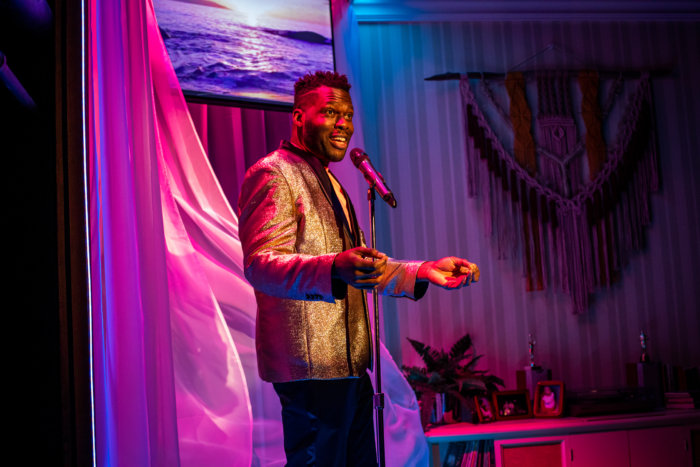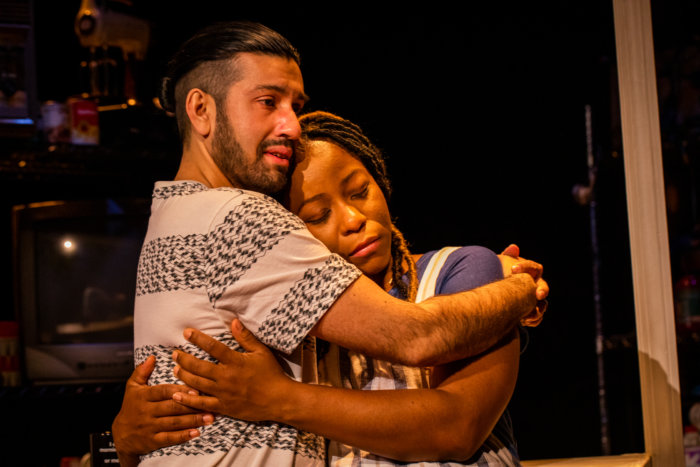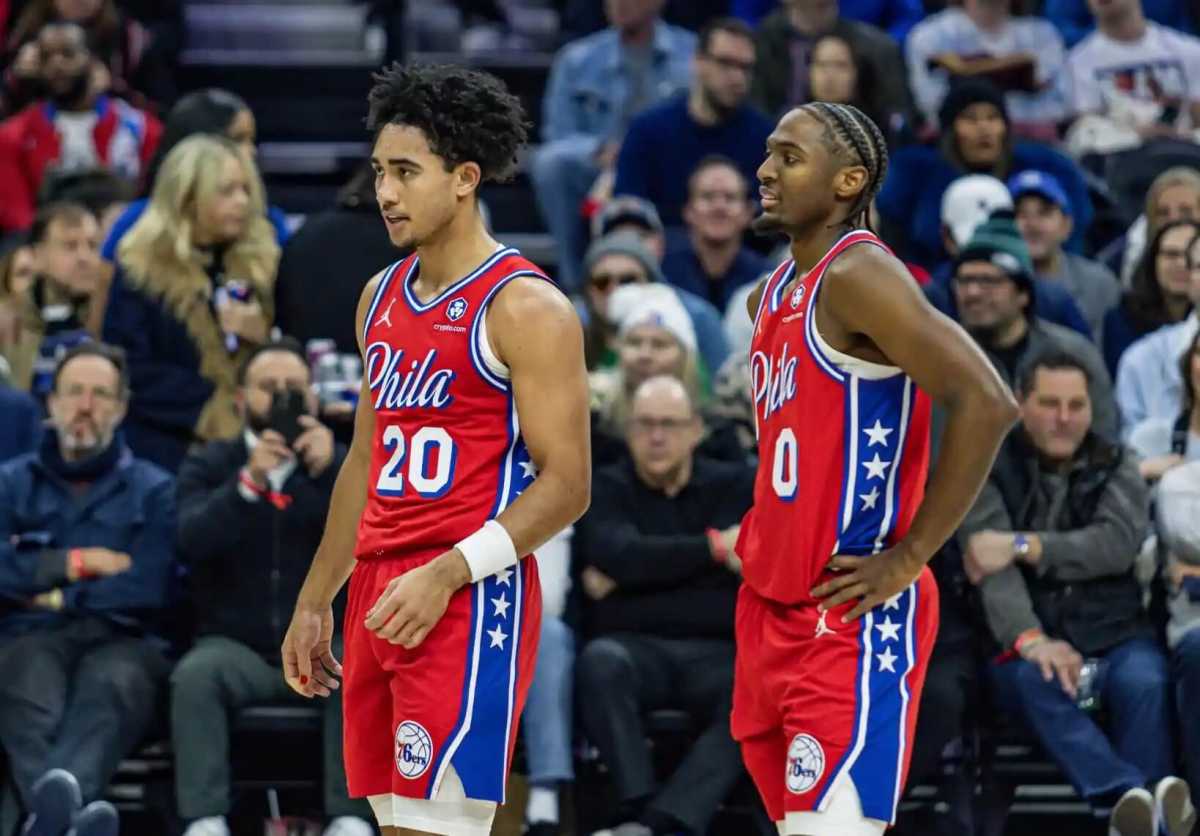Leading a back-and-forth existence between dueling housing in Philadelphia and Baltimore (just like Edgar Allen Poe), author, satirist, screenwriter and playwright R. Eric Thomas is heading into previews for his newest work, ‘Backing Track’.
Commissioned by and staged at the Arden Theatre until April 10, and directed, “prismatically” by Rebecca Wright, the one-time South Philadelphia-native inspired by the LGBTQ and Black histories of Northwest Philly wrote a highly musical play about love, loss and the songs that accompany one’s journey.
‘Backing Track’s’ theatrical soundtrack to the windmills of one’s mind is but one of the projects Thomas is currently embroiled, along with finishing up his writing and executive story editor role on FX’s ‘Better Things’, two upcoming plays premiering in Baltimore (‘The Folks at Home’, ‘Crying on Television’) and the publication of his YA novel, ‘Kings of B’More’.
Metro caught up with Thomas while in previews for ‘Backing Track’ at the Arden’s artist lodgings.

Amorosi: Before we talk about ‘Backing Track’ at the Arden, you wrote for two television series during the pandemic, the most recent being FX’s ‘Better Things’ in its final season this year. Do you feel like Covid slowed you down at all, or sped you up?
Thomas: I did do ‘Better Things’, along with two new plays, three revised plays, and a young adult book. Each one of those projects, though, were a struggle because the energy you get, say, when you are sitting in a coffee shop or walking down the street or seeing a play was gone. The opportunity to see something that reminds you of something else was gone. I wasn’t getting any of that, and I was starved. Because I didn’t want to write about the pandemic. Or Zoom.
Amorosi: Was there a bittersweet feeling knowing that this is ‘Better Things’ last season? I’ll certainly miss what seems like the most spontaneous series on television.
Thomas: ‘Better Things’ is like nothing else on television. It speaks to the idea of completely saying ‘yes’ to one’s vision. That’s what Pamela Adlon has been doing with this series from the start. There’s a real energy on that show to finding the story.

Amorosi: So how does ‘Backing Track’ commence, as a concept, as something you can stage?
Thomas: There were a couple of sparks. Years ago, I wrote a ten-minute play where its basic action was one where a woman’s wife has died and she is trying to remember the password to her frequent flyer miles account. She wants to use the miles to go see her daughter who just had a baby.
Amorosi: Circle of life stuff.
Thomas: It was a genuinely beautiful little play that was about music, memory and moving through grief. I was so in love with those characters that when Terry Nolen at the Arden commissioned a play from me, I immediately knew that I wanted to further explore this family, one struggling with grief, but trying to move through to the future. That became ‘Backing Track’. It became about reaching into the past and figuring out what we want to take with us. And a lot of what we would take into the future meant pop culture.
Amorosi: Like music. Like hearing a particular song.
Thomas: Music you’d hear at a middle school dance. Or the music that accompanied the first time I fell in love. Whatever. Whatever. Music takes you right back. So I built the play around the feeling of listening to a mixtape, and being brought back to all these happy experiences. And sad experiences. And overwhelming love experiences. I call it my ‘karaoke play.’ It’s not a musical, but there’s a lot of singing while asking ‘what’s next?’
Amorosi: What was the mixtape in your head? What does it consist of?
Thomas: If I had to describe the vibe of it, it would be those 90s songs for people in their mid-30s. Ballads that talk about these huge, emotional feelings. Songs that, either through their musicality or lyricism, have some insight into the mystery of life. The best example is Donny Hathaway’s “A Song for You.” At the beginning of that song, there is this descending piano, the gentle tinkling, that sounds like you are walking down the stairs into the basement of your memory. That’s such an effective musical moment. So is Celine Dion’s “It’s All Coming Back to Me Now.” Stevie Wonder shows up. R.E.M, too. It’s about a moment of awakening. It’s also about the simplicity of lying on your parents’ living room floor and going through their record collection. That’s really evocative to me.
Amorosi: I can totally relate to the flip through, album after album, cover after cover.
Thomas: I truly mourn that in regard to today’s generation. I don’t have any children but how would my kid get to know who I was, now? Looking through my Spotify, I guess? There’s something magical about laying on that rug, raiding their collection, sorting through the records, and just wondering ‘Who were these people?’ Music gives us dimension to each other. That’s what’s exciting to me, and that’s what I wanted to explore with ‘Backing Track’.






























